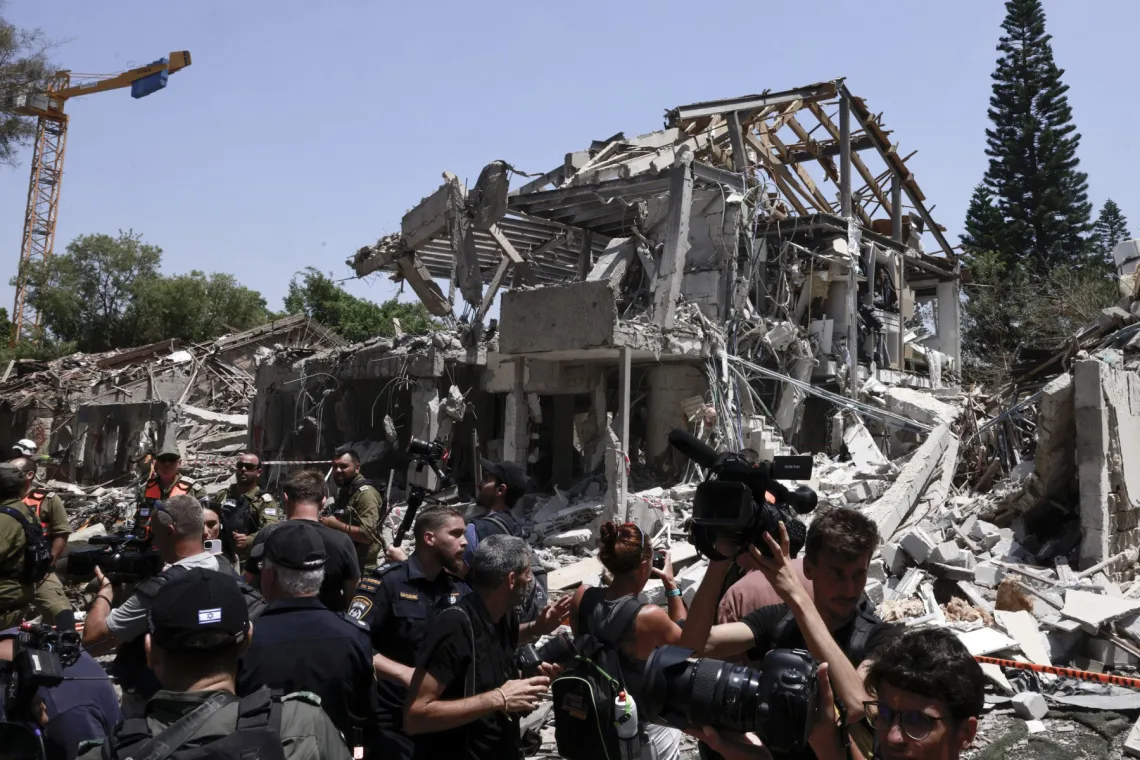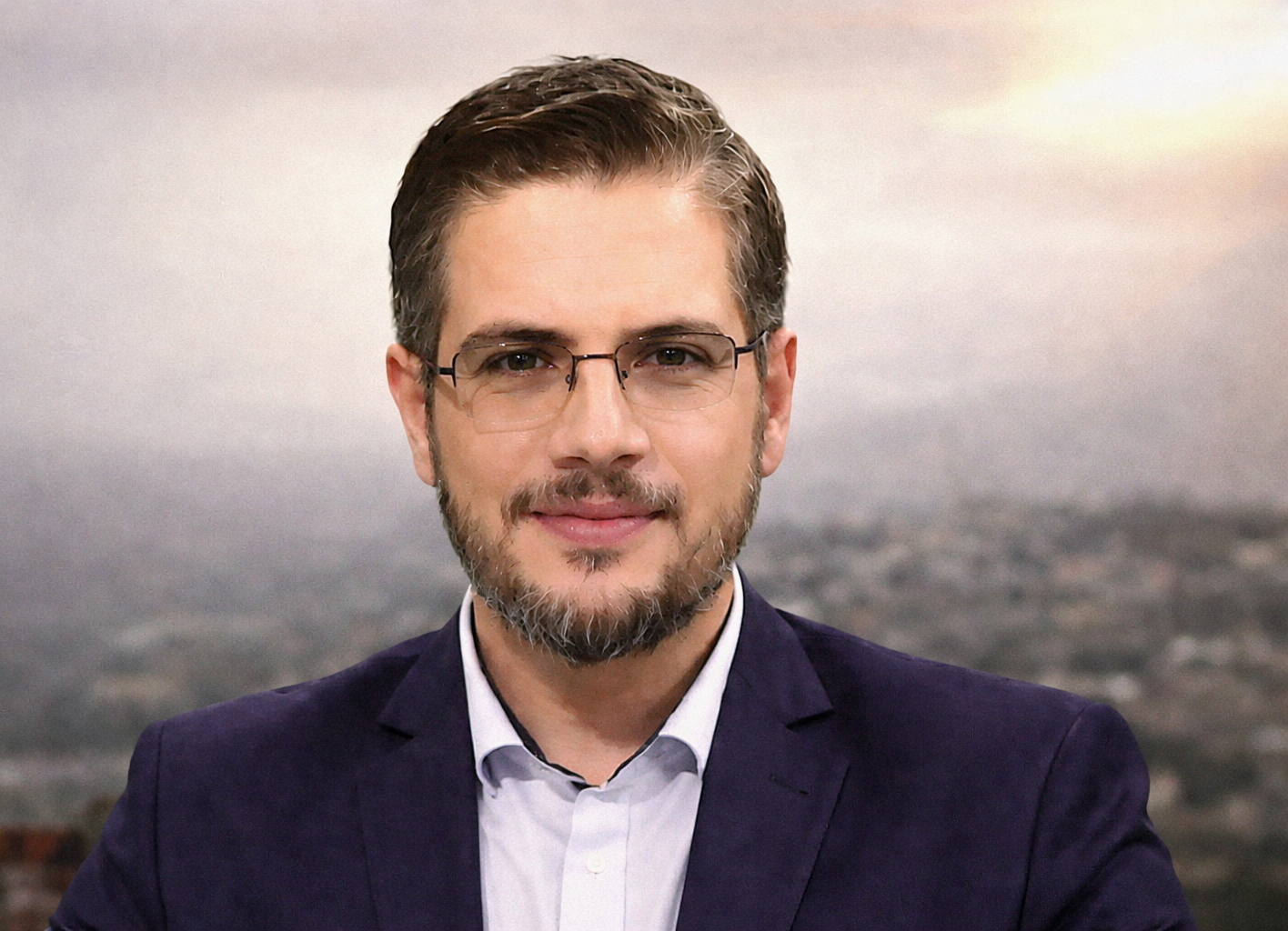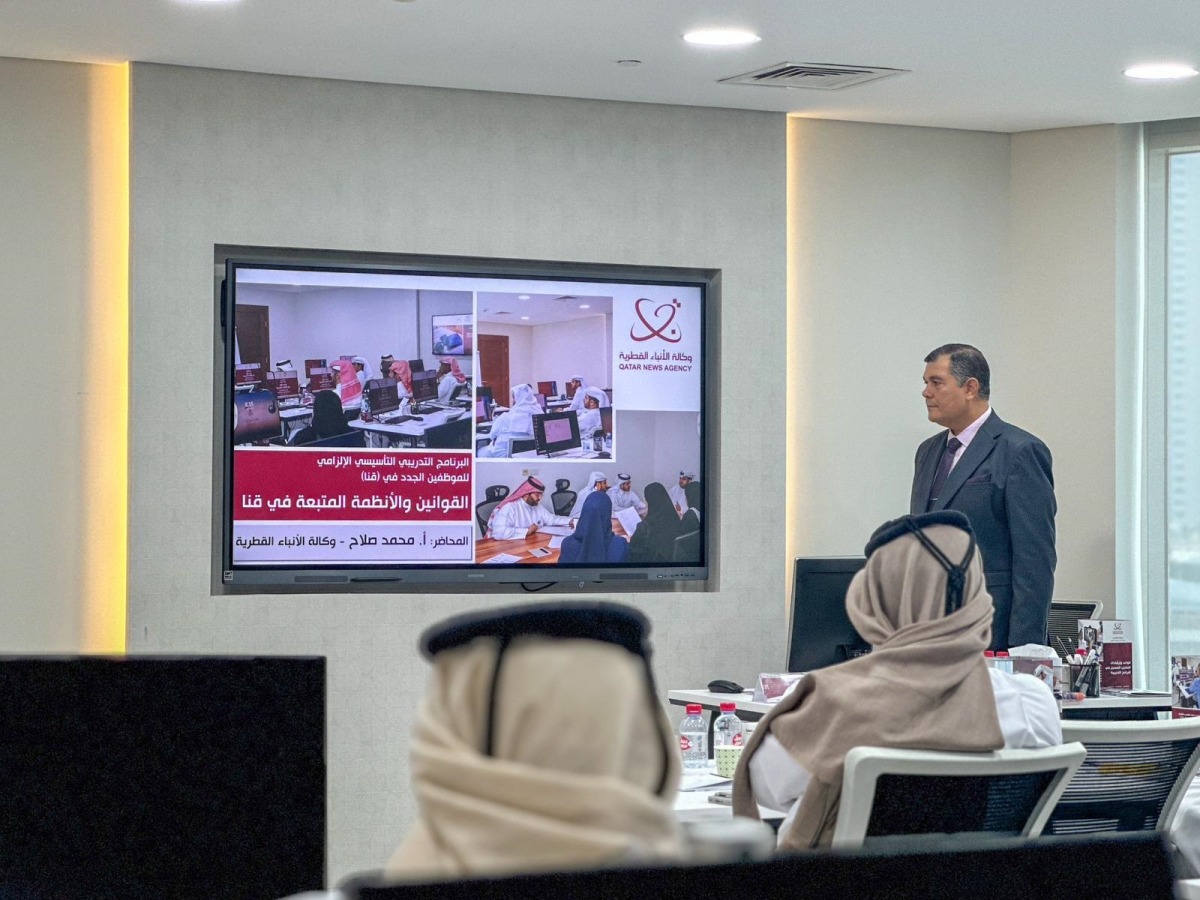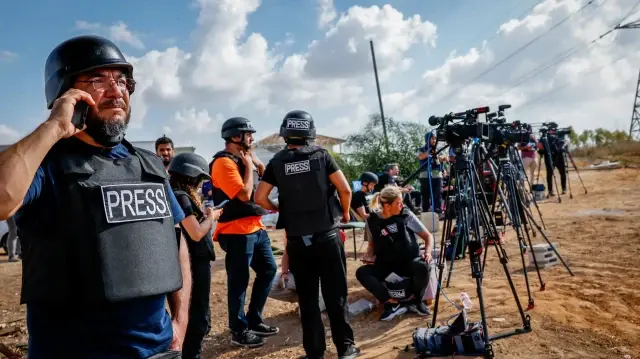
Journalist Mario Guevara Remains in ICE Custody Despite Bond Order
July 9, 2025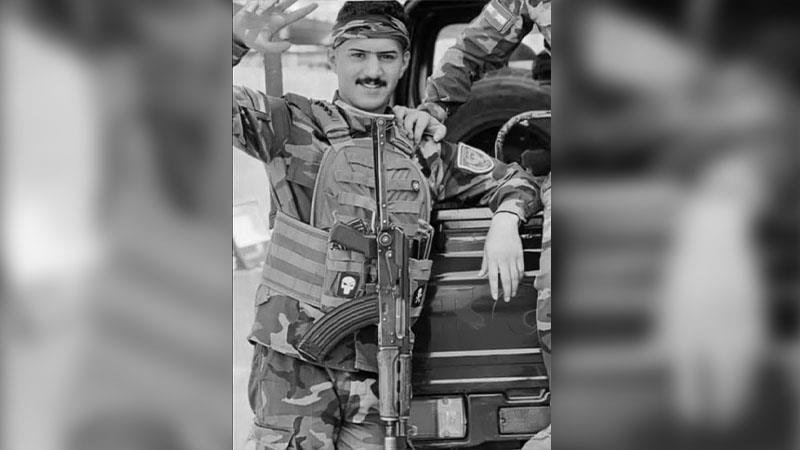
Clashes and Cracks in the Kurdish Region
July 9, 2025July 09, 2025 – Iran –
During its 12-day war with Iran in early 2025, Israel intensified its crackdown on the press, exploiting national security fears to suppress dissent, silence critical voices, and tighten control over media narratives. According to a new report by the Committee to Protect Journalists (CPJ), the Israeli government used the conflict not only to justify expanded military operations but also to escalate long-standing assaults on press freedom.
The CPJ report highlights how Israeli authorities invoked wartime censorship to block coverage of sensitive military developments, often under the guise of protecting national security. Journalists were barred from reporting on key strategic events, including Iranian missile strikes and high-level military movements, while the government-controlled military censor exercised sweeping authority to remove or alter content before publication.
Even international outlets faced restrictions. Foreign journalists operating in Israel were required to submit content to military censors, and failure to comply could result in revoked credentials or expulsion. This created a chilling effect, where even experienced reporters avoided topics likely to trigger state retaliation.
At the same time, online dissent within Israel came under sharp surveillance. Social media users, including independent journalists, faced interrogation and arrests for posts critical of the government or sympathetic to Palestinian or Iranian narratives. In some cases, individuals were charged with incitement or “undermining morale,” further blurring the line between national security and political repression.
CPJ also points to a disturbing pattern of physical attacks on journalists reporting from Gaza and the West Bank. Since the outbreak of war, dozens of Palestinian journalists have been killed in Israeli airstrikes, many while identified as members of the press. These deaths have drawn global condemnation and raised questions about whether Israel is deliberately targeting media workers.
The report warns that the erosion of press freedom during wartime could become a permanent feature of Israel’s information landscape. CPJ urges Israeli authorities to restore full media access, end arbitrary censorship, and investigate attacks on journalists. As the region remains volatile, the integrity of the press—and its ability to hold power to account—hangs in the balance.
Reference –

